MercoPress. South Atlantic News Agency
Tag: Central Bank of Brazil
-
Tuesday, April 28th 2015 - 05:44 UTC
Brazil's economy expected to further contract and inflation to reach 8.25%
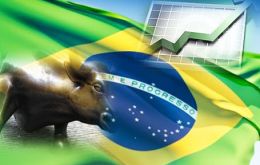
Analysts have reviewed negatively Brazil's 2015 inflation and growth forecasts, according to the latest Focus report from the Central Bank, released on Monday. The survey which includes 100 analysts from private financial institutions on the state of the economy anticipates inflation of 8.25% and 1.1% contraction of GDP by the end of the year.
-
Monday, April 6th 2015 - 16:56 UTC
Brazilian economy to contract 2% this year, and inflation 9% predicts French bank

BNP Paribas said in Sao Paulo that it expects Brazil's gross domestic product to shrink 2% this year, or double the contraction the French financial services company had projected one quarter ago.
-
Friday, March 27th 2015 - 08:23 UTC
Brazil's central bank forecasts economy will contract 0.5% and inflation climb to 7.9%
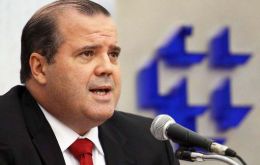
Brazil's economy will contract 0.5% in 2015 and inflation will climb to 7.9%, ending the year far outside the tolerance range, the Central Bank admitted on Thursday in its latest quarterly inflation report.
-
Thursday, March 26th 2015 - 09:07 UTC
Brazil central bank will cease forex intervention program as of April
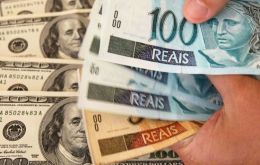
Brazil's central bank announced on Tuesday it will not extend its currency intervention program past March 31 as a combination of political problems at home and fears of higher U.S. interest rates push the Real near its lowest levels in a decade. The bank will, however, roll over all swaps expiring after May 1.
-
Friday, March 13th 2015 - 11:28 UTC
Brazil central bank admits interest policy has not been effective in fighting inflation
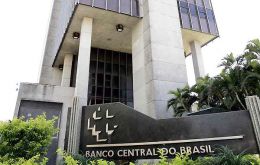
Brazil's Central Bank appears likely to continue raising interest rates in the short-term, saying in its most recent meeting that its inflation-fighting effort in recent months has been insufficiently effective. The view was reflected in the minutes, published on Thursday, of its monetary policy committee's March 4 meeting, when the bank raised its benchmark Selic interest rate by 50 basis points to 12.75%.
-
Thursday, March 5th 2015 - 08:17 UTC
Brazil raises benchmark interest to 12.75%, highest level since 2009

Brazil’s central bank raised its benchmark interest rate to 12.75% Wednesday, the highest level since 2009, as it struggles to get price increases under control amid sluggish economic growth and deepening political turmoil.
-
Thursday, January 22nd 2015 - 06:39 UTC
Brazil central bank increases basic rate to 12,25%, highest since August 2011

Brazil's central bank raised interest rates to a more than three-year high on Wednesday, maintaining an aggressive pace of monetary tightening to contain high inflation, help the economy back on its tracks and win investors disillusioned with the once-booming economy.
-
Monday, January 19th 2015 - 07:10 UTC
Brazil central bank expected to raise interest rates this week for third time running
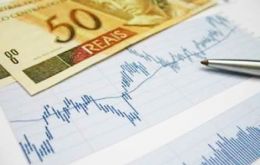
Brazil's central bank is expected to raise interest rates for a third straight meeting this week to quell any doubts about its commitment to ending years of high inflation.
-
Wednesday, December 31st 2014 - 05:31 UTC
Brazil limits social benefits; admits it will miss 2014 fiscal target by wide margin
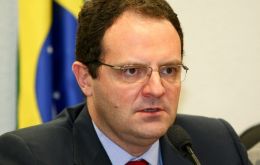
The Brazilian government announced it will limit unemployment and pension benefits as part of its plans to shore up depleted finances and regain investor confidence. Likewise the Central bank said that following a fourth year of low growth, Brazil will miss its fiscal target for 2014 by a wide margin.
-
Thursday, December 18th 2014 - 21:00 UTC
Brazil's trade balance to benefit from oil price drop
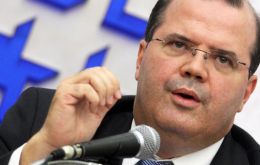
Central Bank President Alexandre Tombini sees the bright side of the international trend that is causing many others a headache, because the country is a net petroleum importer.
